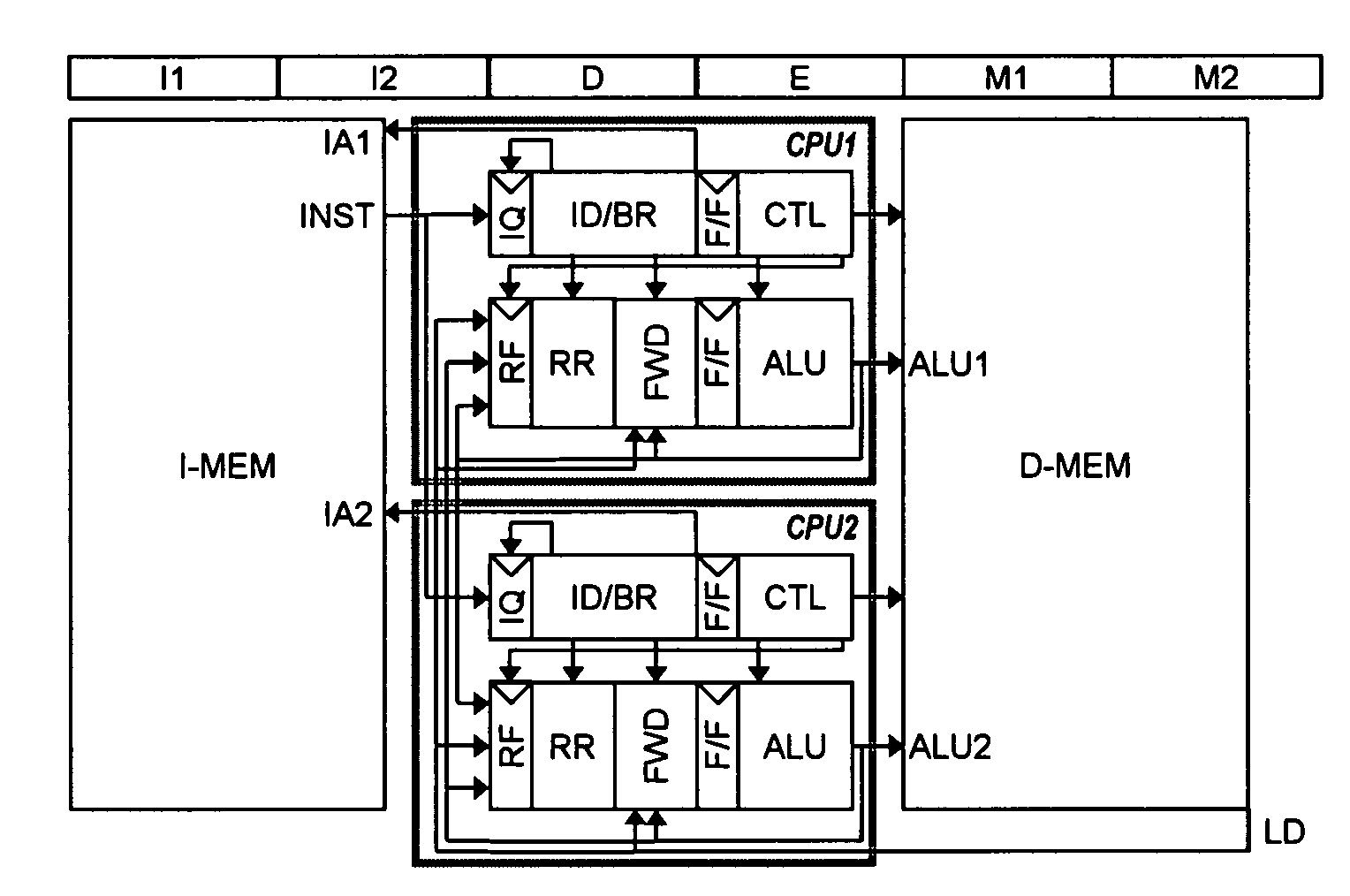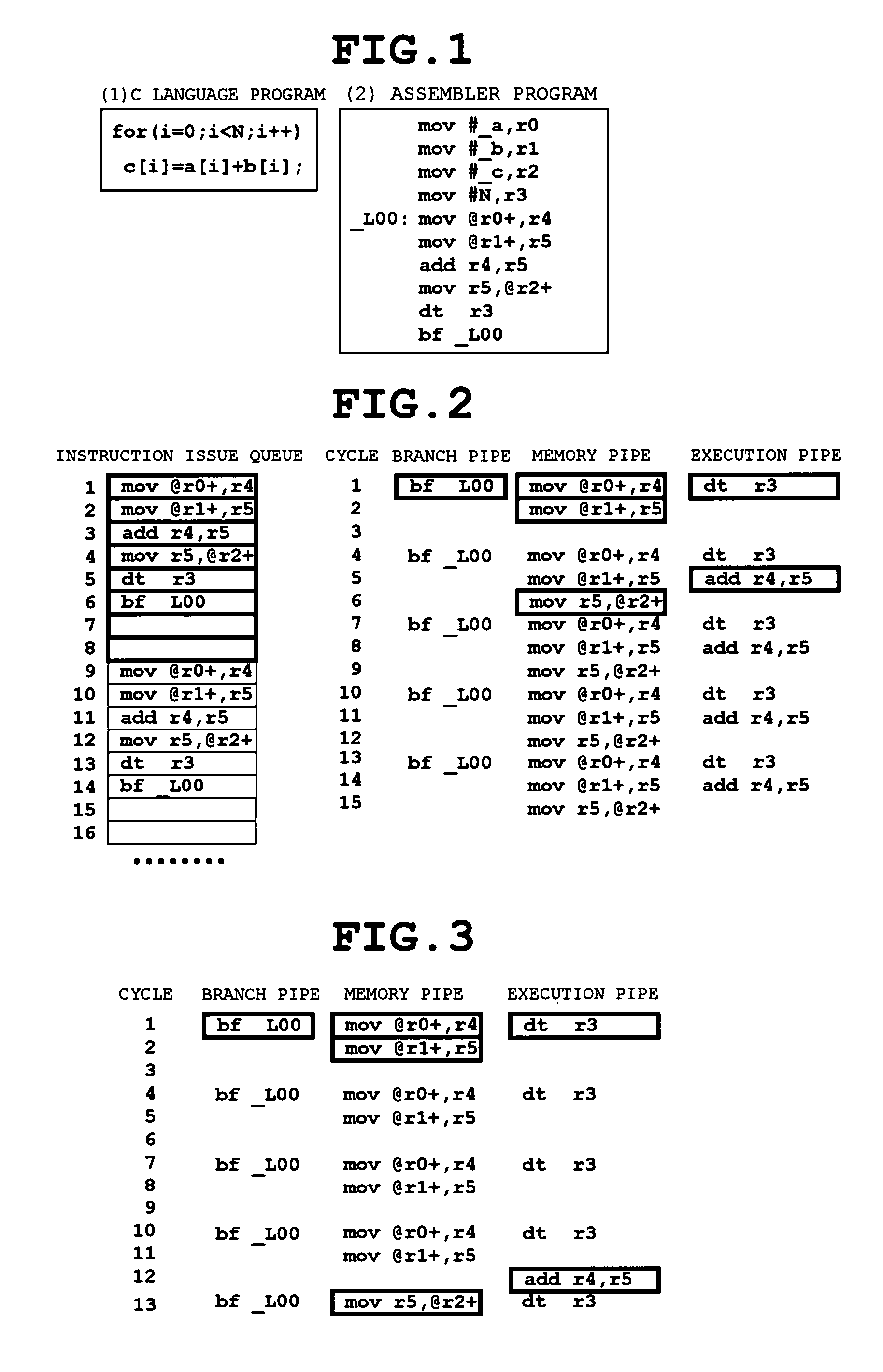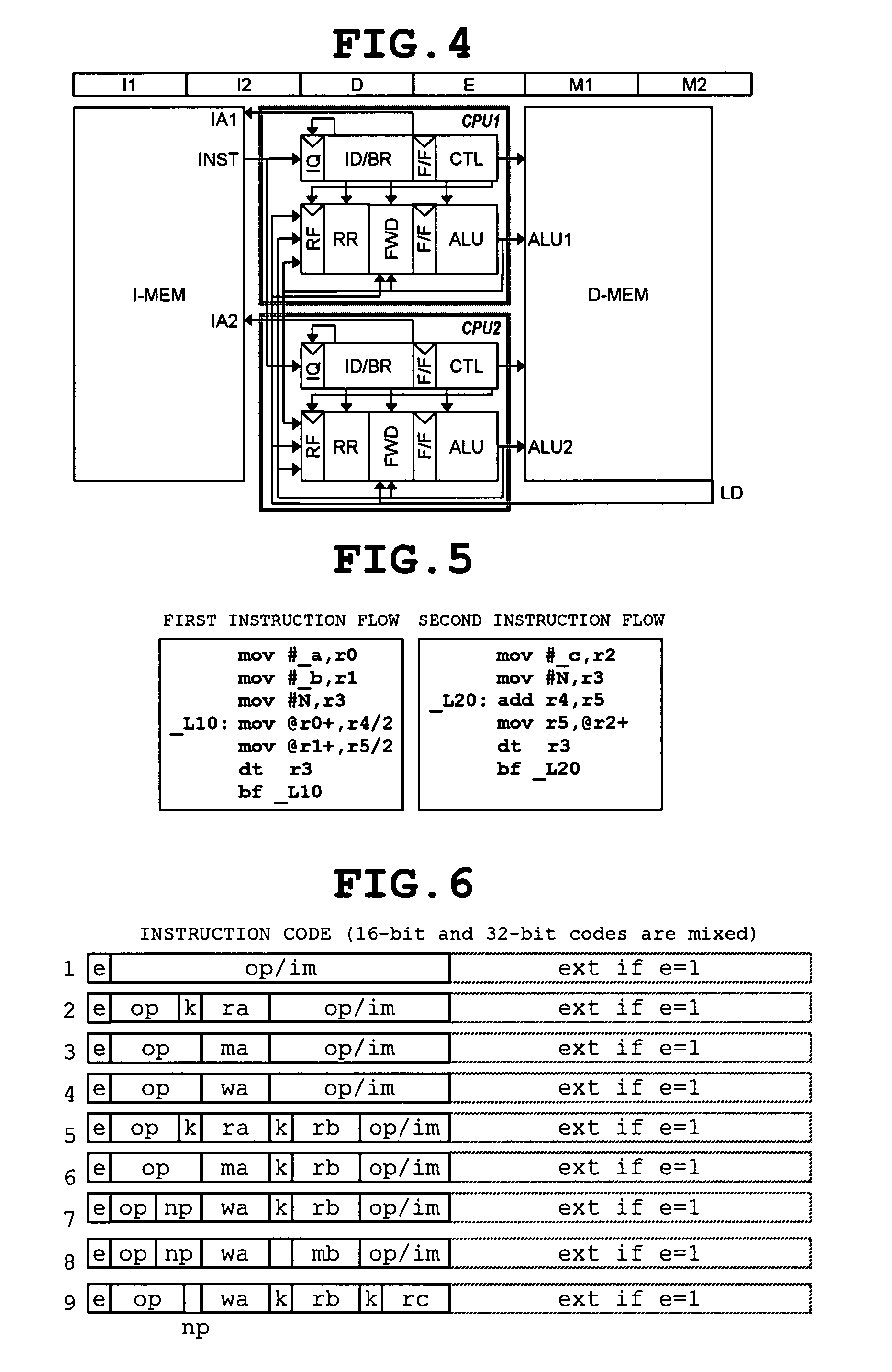Data processor
a data processor and data technology, applied in the field of data processors, can solve the problems of affecting the efficiency of data exchange between instruction flows, and reducing the efficiency of various kinds of processing, so as to achieve the effect of improving efficiency and simplifying the structure of the nanoprocessor
- Summary
- Abstract
- Description
- Claims
- Application Information
AI Technical Summary
Benefits of technology
Problems solved by technology
Method used
Image
Examples
first embodiment
[0071]In reference to FIG. 4, a pipeline structure of a data processor in association with the first embodiment of the invention is exemplified schematically. The data processor includes nanoprocessors CPU1 and CPU2, which are central processing units identical in structure, to handle two instruction flows. The nanoprocessors CPU1 and CPU2 make the different instruction flows run. One central processing function or data processor function is realized as an integrated whole of functions offered by the nanoprocessors.
[0072]The nanoprocessors CPU1 and CPU2 are typical in-order-issue type scalar processors in view of their basic structure. The pipeline is composed of two instruction fetch stages I1 and I2, a decode stage D, an execution stage E, and two memory access stages M1 and M2. The two nanoprocessors CPU1 and CPU2 are identical in arrangement, and therefore the arrangement will be described taking one processor CPU1 as a typical example. First, in the instruction fetch stages I1 ...
second embodiment
[0092]In reference to FIG. 13, a data processor in association with the second embodiment of the invention is exemplified. In the second embodiment, each nanoprocessor is arranged to have a single function. The data processor includes: an instruction fetch nanoprocessor (IF Nanoprocessor) IFN; an execution nanoprocessor (EX Nanoprocessor) EXN; a load nanoprocessor (LD Nanoprocessor) LDN; a store nanoprocessor (ST Nanoprocessor) STN; an instruction memory (I-MEM); and a data memory (D-MEM).
[0093]The pipeline of each nanoprocessor has a form as obtained by simplification of a typical processor pipeline. The nanoprocessors are similar in basic arrangement, which is composed of a decode stage D, an execution stage E, and two memory access stages M1 and M2.
[0094]The instruction fetch nanoprocessor IFN will be described first. In the stage D, an instruction in an instruction queue IQ is subjected to instruction decode by an instruction decoder ID, and a register read unit RR performs regi...
third embodiment
[0108]In reference to FIG. 16, a data processor in association with the third embodiment of the invention is exemplified. In the third embodiment, of the nanoprocessors according to the second embodiment, the load nanoprocessor LDN and store nanoprocessor STN are integrated into a load store nanoprocessor (LS Nanoprocessor) LSN. It is conducive to improving the performance of a data processor that a data processor is functionally divided as personified according to the second embodiment so that the resulting functional blocks are staggered in timings. This is because load to be executed prior to the operation, and store are different in optimum execution timing basically. Here, it is noted that the load is an action of supplying a source operand for an operation from a memory, and the sore refers to an action of storing the result of an operation after the operation. However, for the purpose of facilitating analysis of mutual dependence of memory access, it is desirable to carry out...
PUM
 Login to View More
Login to View More Abstract
Description
Claims
Application Information
 Login to View More
Login to View More - R&D
- Intellectual Property
- Life Sciences
- Materials
- Tech Scout
- Unparalleled Data Quality
- Higher Quality Content
- 60% Fewer Hallucinations
Browse by: Latest US Patents, China's latest patents, Technical Efficacy Thesaurus, Application Domain, Technology Topic, Popular Technical Reports.
© 2025 PatSnap. All rights reserved.Legal|Privacy policy|Modern Slavery Act Transparency Statement|Sitemap|About US| Contact US: help@patsnap.com



